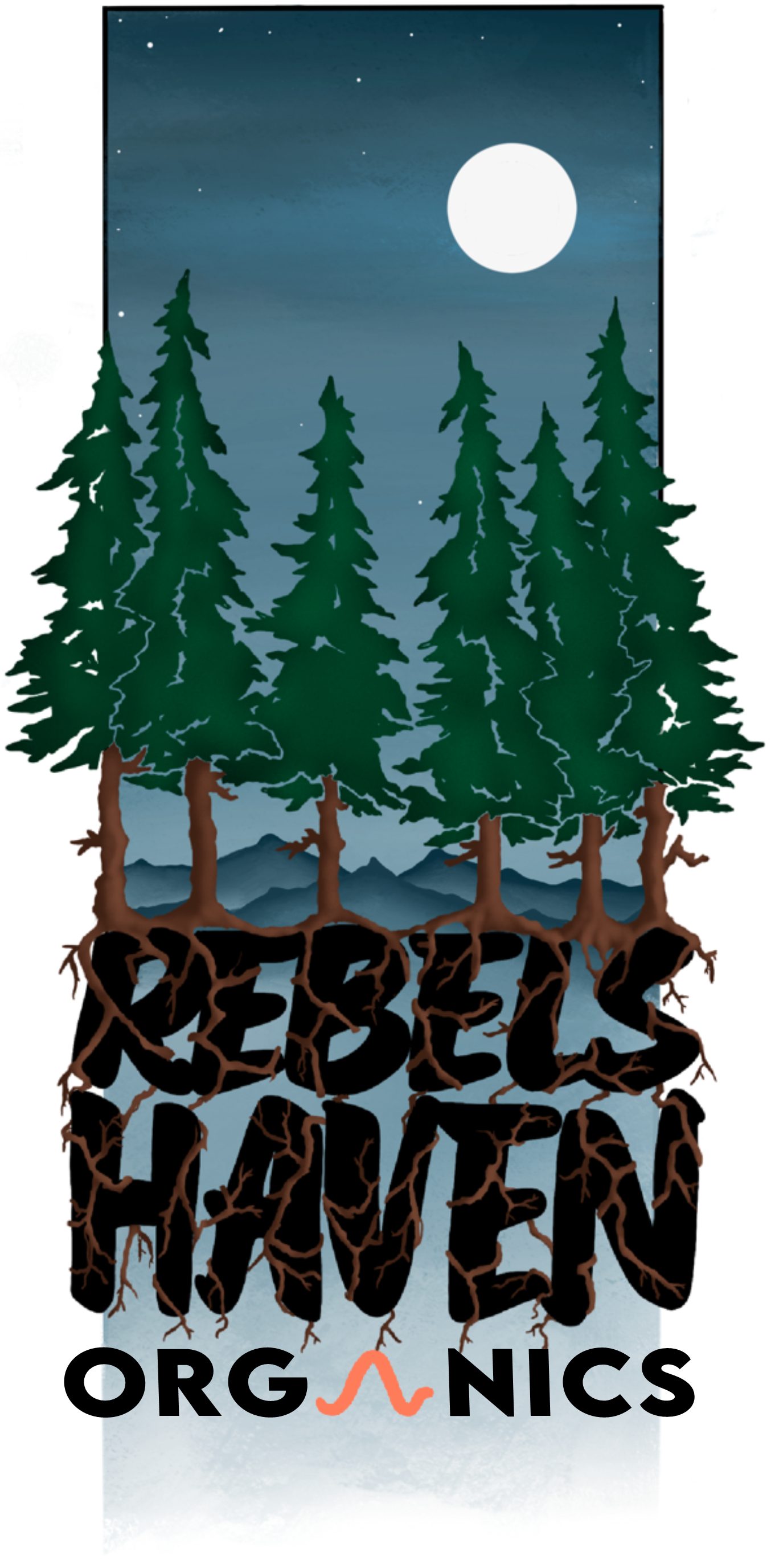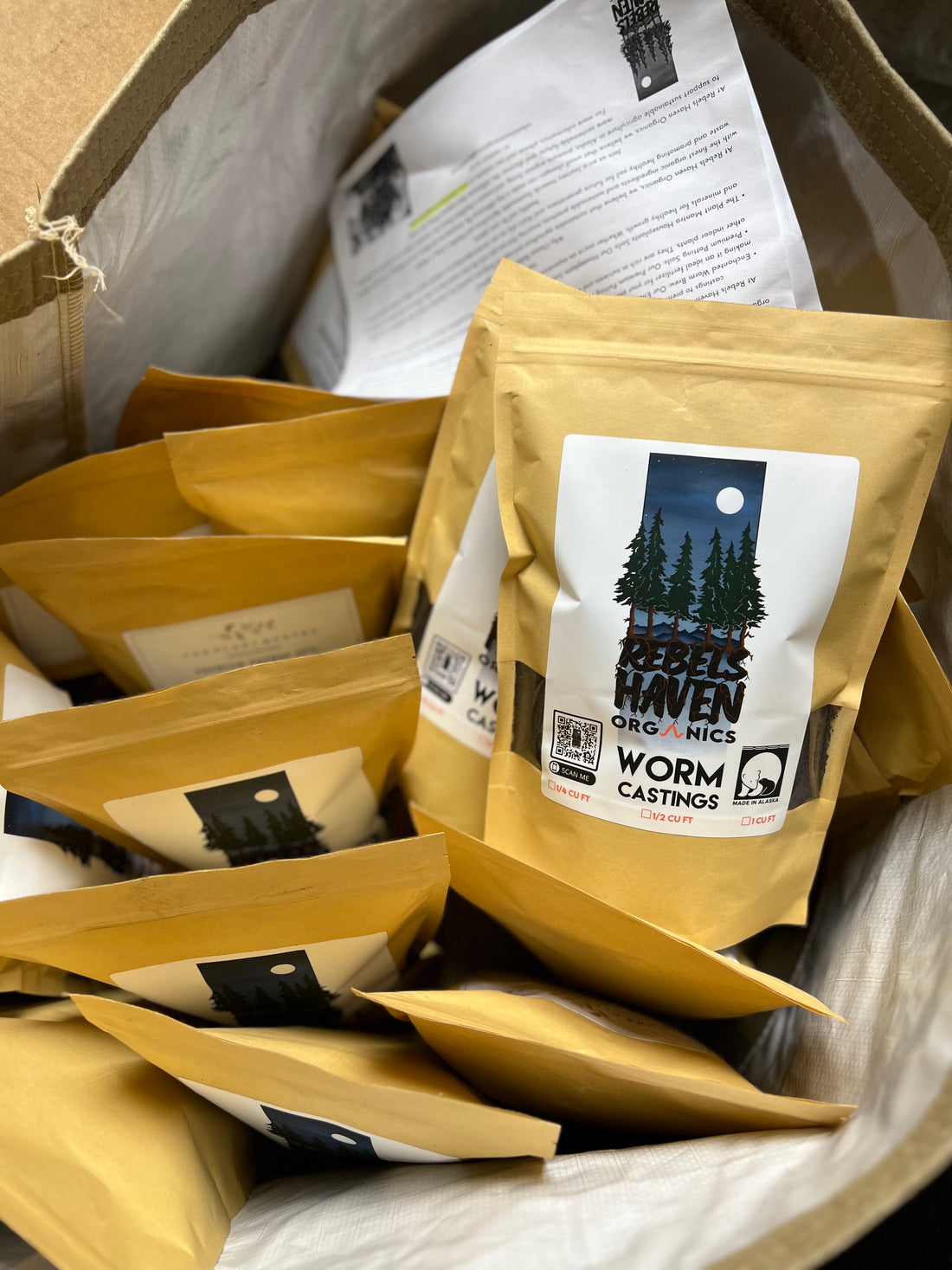Rebels Haven Organics is committed to sustainable and organic farming practices, and we are proud to use the power of earthworms to help us achieve our mission. Our products are made using high-quality worm castings, which are produced by our team of European and African Nightcrawlers.
Earthworms are remarkable creatures that play a critical role in the health and vitality of our soil. They help to break down organic matter, aerate the soil, and enrich it with essential nutrients. At Rebels Haven Organics, we have harnessed the power of these incredible creatures to produce some of the finest organic fertilizers and soil amendments on the market.
Our European and African Nightcrawlers are carefully raised and nourished in a controlled environment that mimics their natural habitat. We feed them a diet of high-quality organic matter, including grains, mycorrhizae, yard waste, and compost, to ensure they produce the highest-quality worm castings possible.
Once the worms have produced the worm castings, we carefully harvest them and begin the process of transforming them into our organic fertilizers and soil amendments. Worm castings are one of the most nutrient-rich and beneficial substances for plants and soil, containing a wealth of beneficial microorganisms, minerals, and trace elements.
We use the worm castings to create a range of products, including our popular Organic Worm Castings, Enchanted Worm Brew, and Premium Potting Soil. All of our products are 100% organic and environmentally friendly, making them safe and effective for use in all types of gardens, farms, and landscapes.
At Rebels Haven Organics, we are passionate about promoting sustainable and organic farming practices, and we believe that earthworms play a vital role in achieving this goal. By using our European and African Nightcrawlers to produce high-quality worm castings, we are able to create some of the finest organic fertilizers and soil amendments on the market, helping gardeners and farmers to grow healthier and more productive crops, while protecting the environment for future generations.

